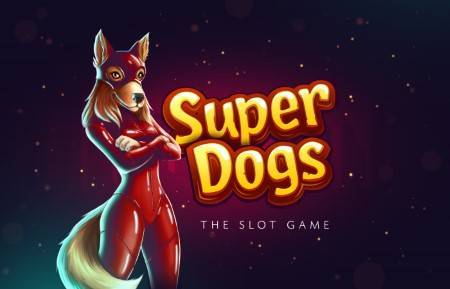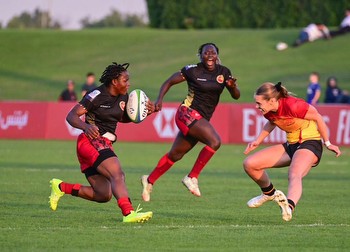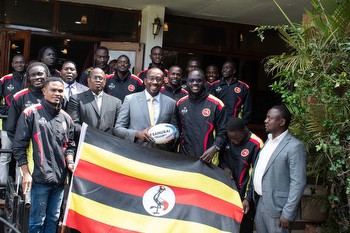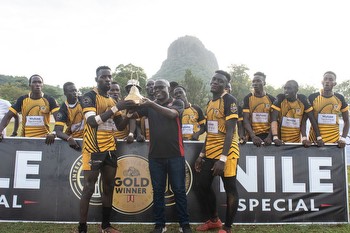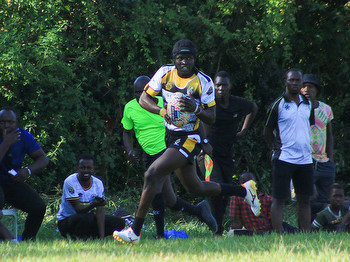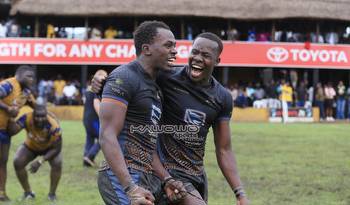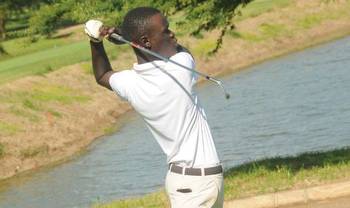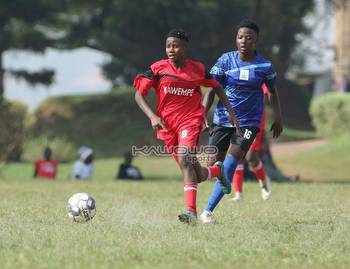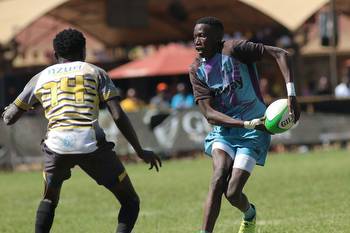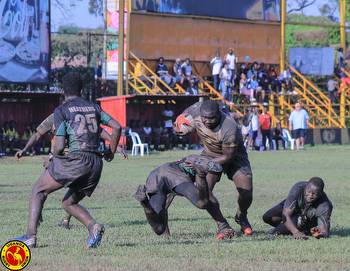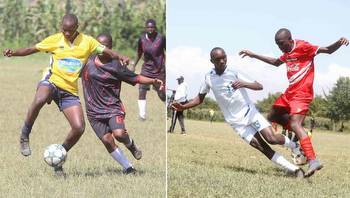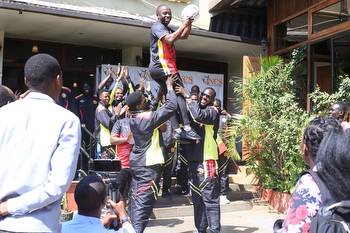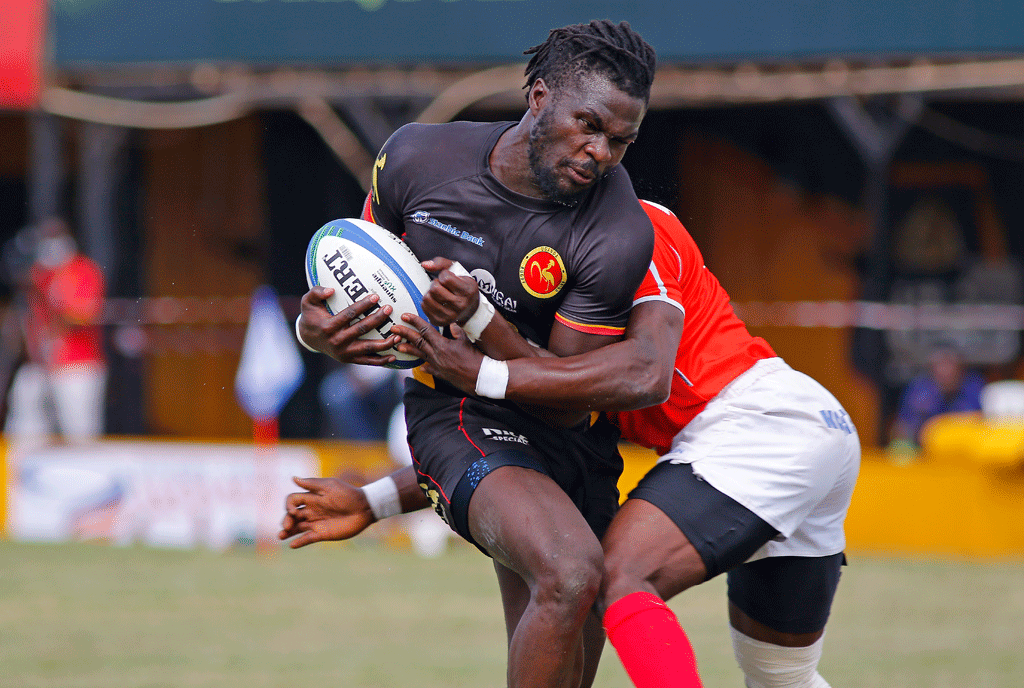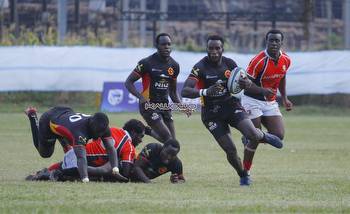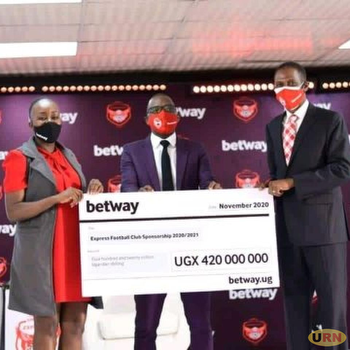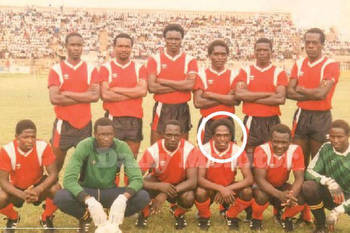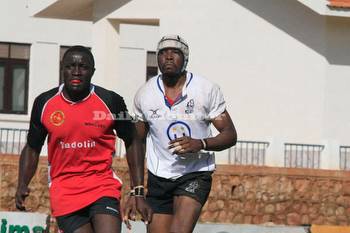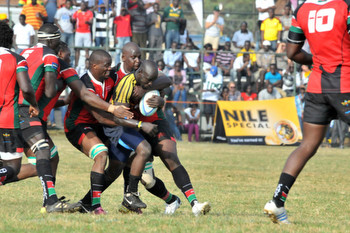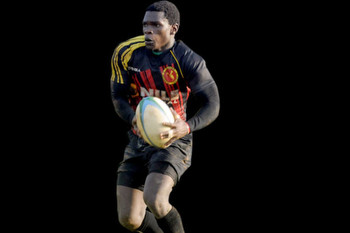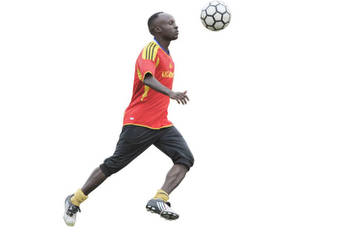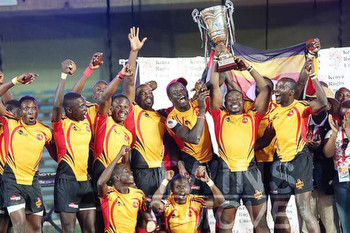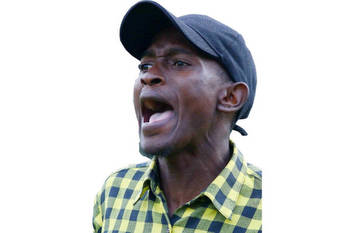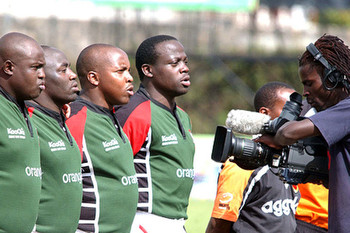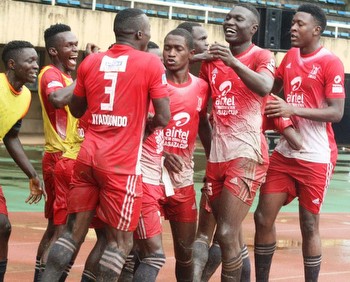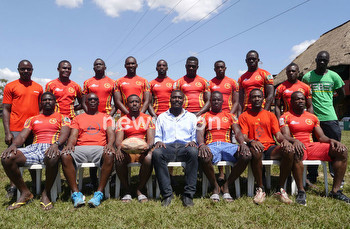Herbo: Never weighed by weight of any jersey
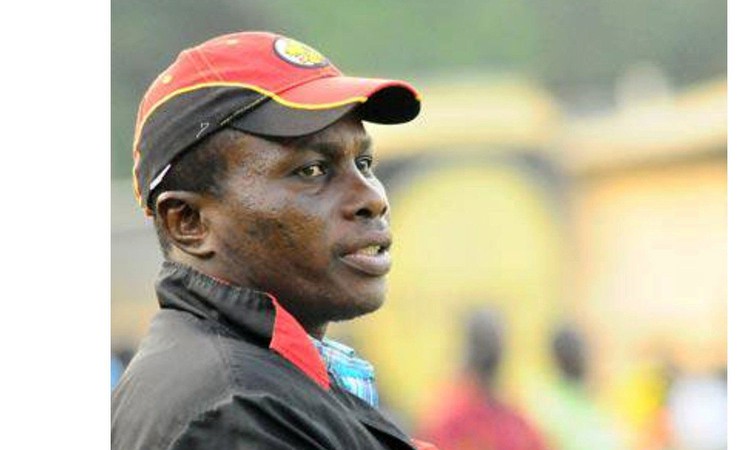
What you need to know:
- Although Herbo, as the rugby fraternity warmly knew Wafula, was sufficiently concerned about the Rugby Cranes’ display on that wet Saturday afternoon in July 2019, he—much like Michael’s ‘undercooked’ pork—still found the team to be palatable. In fact, he would choose them over what Michael sizzled in a heartbeat.
When Jacob Ojee turned on the afterburners to go over and make any possibility of a Rugby Cranes comeback vanishingly small, I decided I had seen enough.
Kenya’s Simbas were now primed to win a commanding victory at Kyadondo that rendered the hard-fought win Uganda had squeezed out on the road in Kisumu weeks earlier meaningless.
The 2019 Elgon Cup title was, as always seems to be the case, Kenya’s to toast to.
A deep deposit of frustration carried me to Michael’s pork point at the corner of the rugby club. As to how many sticks I ordered, everything was a bit of a blur. What is crystal clear is that Herbert Wafula picked one.
“You should go easy on these things,” he said in his baritone Kenyan accent that lent everything he said an avuncular air, adding, the tone certain and prescriptive, “They tend to undercook the pork on days such as this one.”
Besides Wafula and I munching away, anyway, another unifying strand was to be found in the conversation that ensued. We both had a yearning to see bravery and determination from the Rugby Cranes in the face of great odds.
Robert Seguya, Wafula’s former back row colleague, was in the dugout that day, and would continue to discharge his duties as head coach until cancer reared an ugly head a few years later.
Although Herbo, as the rugby fraternity warmly knew Wafula, was sufficiently concerned about the Rugby Cranes’ display on that wet Saturday afternoon in July 2019, he—much like Michael’s ‘undercooked’ pork—still found the team to be palatable. In fact, he would choose them over what Michael sizzled in a heartbeat.
Starting out
This was not the case when Paul Sigombe, Herbo’s uncle and former Uganda Rugby Union boss, took him for a rugby game at Ruaka Road in the Kenyan capital, Nairobi. A young impressionable Wafula, still only in primary school, was more interested in devouring pilau than watching the rugby game. By the time he joined secondary school at Upper Hill School in Nairobi, as the 1990s beckoned, Sigombe’s efforts had not been in vain.
The rugby bug had, well and truly, bitten.
By his sophomore year, Herbo was already in the school team—a dizzying achievement by any measure. He first started out in the first row as a lock before settling in the back row where he initially played as a flanker and then an eighth man.
If scrum-halves are the archetypal rabble-rouser on a rugby pitch, first rows and back rows traditionally steel themselves for a gruelling fight. Herbo was no exception. He quickly toughened up and had the bruises to show for it. Each scar shaped into a badge of honour as he earned both the affection and admiration of fans and observers alike.
Herbo was a physical and intellectual presence on the pitch during his heyday. With hindsight, surprise should not greet the fact that he seemed untroubled when a return to his native country saw him figure in the backline. His inexhaustible smarts saw him play, with distinction, at fly-half, fullback and first centre. He was determined to ensure that there was a semblance of control as his teams went through the phases.
No10 jersey
At the time, per Herbo, you could count off the fingers of one hand the No10s that had the nous to control games. One of them was Yayiro Kasasa. Herbo played alongside Kasasa as Kobs deployed two No10s—with the former at first centre—during a dominant season in 1997 that saw them finish undefeated.
So determined was Herbo to wear rugby’s most celebrated shirt numbers that he moved to Impis. For two seasons, the varsity side lost the league title on the final day at the hands of Kobs. Before that, Herbo’s unpretentious excellence had seen him win his first international cap with the Rugby Cranes in 1997. This was the first Test Uganda played under its own flag; never mind that Kenya took the bragging rights. Ten more caps would follow before he called time on his career after leading Uganda to the Confederation of African Rugby (CAR) 1B Cup title in 2002. The caps could have been more, Herbo once opined, had Kenya not made a habit of “dodging” Uganda.
En route to winning the CAR 1B Cup title, the Rugby Cranes upstaged the old foe on the back of a kicking clinic from Seguya and an intercept from Timothy Mudoola. Seguya kicked 20 points, including a place kick from 50 metres as Uganda notched a famous win at the RFUEA Ground in Nairobi.
No mean feat
Wafula was mightily proud to captain that team that followed that landmark win with conquests over Cameroon and Botswana. Seguya was vice captain back then when Rugby Cranes fans were starting to be unfailingly supportive and rigorously demanding of their team. He lost his battle to cancer in December 2021 aged just 42.
In 2010, Soggy—as Seguya was affectionately known—had a close shave with death when an improvised explosive device tore through Kyadondo Rugby Club during the screening of a Fifa World Cup final. Soggy, who at the time was manager of the facility, had just taken a toilet break when all hell broke loose.
The day after the attack, as vultures continued to hover above the club, a photo of the damage shrapnel wrought on the water tank went viral. Everyone feared for Michael since he always set up shop a stone’s throw from the tank. Miraculously, Michael survived. Unscathed. As did Soggy.
Two of a kind
Herbo and Soggy, in life as in death, shared a lot in common. Colossuses in the back row, room at some point had to be made for either in the back division. As coaches, they were candid and demanding to a fault. They were also punishingly tough on themselves.
During the inaugural Protector Rugby Super Series in 2014, Soggy went several hours without having something substantial to eat. This owed to the fact that he was coaching two teams that were pencilled in to contest a final. Both (Protectors and Hana Mixed) lost. Soggy was so shattered that he collapsed. Literally.
For many, this was, perhaps, the first indication of Soggy’s mortality. Five years Soggy’s senior, Herbo’s feet of clay moment arrived much earlier. In 2007, to be specific. He came off second best during an altercation with Tobi Ojok in the hotel parking lot after an awards dinner had run its course. Then the country manager of the Uganda Rugby Union (URU), the incident provided fodder for the tabloids.
Coaching
If these moments showed both Herbert Wafula (Herbo) and Robert Seguya (Soggy) in a most unflattering light, then their approaches to coaching achieved the polar opposite.
Tough, unyielding, passionate, and relentless, they each provoked players entrusted to their care to raise their game.
Specifically, Herbo started coaching when he was still a student at Upper Hill School. While his alma mater dominated the Prescott Cup from 2016 to 2019, it fell on lean times back in the day when he was clothed in the player-cum-coach garb.
This, though, did not preclude him from discharging the same duties when he joined Impis in 1998. As a matter of fact, Herbo took to coaching as a duck does water so much so that he handled an unprecedented five teams (Impis, Kobs, Rhinos, Pirates, and Warriors) in Uganda’s top flight rugby league—the Premiership.
The first International Rugby Board or IRB educator for coaches in East Africa, Herbo is credited for being the first coach to work tirelessly and obsessively on the craft of the Uganda Sevens.
The green shoots started sprouting in 2004 when Uganda figured in the Henley International Sevens. The showing was decent enough to merit a wildcard to Dubai Sevens where Uganda pulled off a 22-17 upset win over France.
Back on July 13, 2019, as I watched Herbo walk away, following the fading of afternoon into evening, little did I know this was the last face-to-face interface I was having with the legend. Six months later, Covid-19 happened.
When Uganda dropped its pandemic curbs that, among others, shackled contact sports like rugby, a redeployment took me away from the sports desk.
News of his passing on November 24, a little over two months after he celebrated his 49th birthday, produced a great vacancy in Ugandan rugby circles. Like Soggy, Herbo died in his 40s. Like Soggy, he will be sorely missed.
